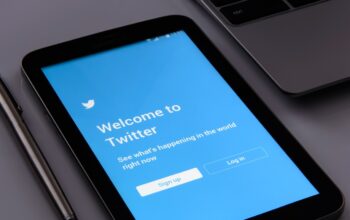The influence of the digital landscape has played a major role on the way we navigate through all aspects of modern life. From the way we connect socially, to the way we watch TV or drive GPS-navigated cars, digital technology is continuing to influence the world.
At the same time, digital technology is also reshaping the media industry, making it more dynamic today than ever before. With a shifting landscape, an abundance of digital tools, and the influence of audience expectations, media professionals must learn to evolve with change or face falling behind.
Eldon Mascoll is the founder and Executive Producer of Freedom Park Media Group (FPMG), a Toronto-based digital media company. Having worked in digital media in a range of capacities for more than two decades, Mascoll explains that although the media landscape has changed with digital distribution, the art and importance of storytelling remains the same.
His advice to today’s young media professionals is based on core basics such as strong writing and people skills; he also says that success in digital media today requires being able to adapt to new digital platforms, for example, artificial intelligence.
Toronto’s Eldon Mascoll explains, “Artificial Intelligence is only getting bigger. Companies are being built around AI technology. It’s all encompassing when you look at how programmatic advertising works. It allows you to precisely identify your target and it’s changed the entire ad buying business. It’s gone beyond search. They’re also using AI in chat. Everything you do in the digital space is being monitored and acted upon. It’s scary but it’s the new world.”
Eric Greenberg, the Head of IAB Leadership Programs, meanwhile says that the shift to digital means media organizations will need to create processes and workflows that keep up with industry changes. He believes the organizational culture needs to evolve too, and leaders are responsible for making it happen.
Greenberg adds, “The biggest challenge is often digital transformation. Most large established media companies have existing processes and strategies in place that are based upon old business models that are no longer relevant, or insufficient to compete in today’s digital ecosystem.”
At a time where the lines between marketing, advertising, and PR have blurred, as have the lines between journalism and brand/organization-generated content, it is more important than ever to embrace digital change.
Joe Cohen, national chair for Public Relations Society of America, suggests, “In a media environment where constant change is the norm, and where the role of the PR professional continues to expand and evolve, ongoing professional development will be increasingly essential for PR pros across all levels of experience.”
Understanding data and analytics are also key. PR and media professionals are now expected to demonstrate a return on investment and must learn new software and reasoning to do it or they will risk falling behind their competitors.
Eldon Mascoll: “Get comfortable with data. Analytics is nothing new in the communications world, but it has certainly developed in the last few years.”
The shift to digital media is dramatically faster than ever, making it safe to say that deploying new technology is an absolute necessity, and one where media professionals will need to continually reinvent themselves.
Related Posts












